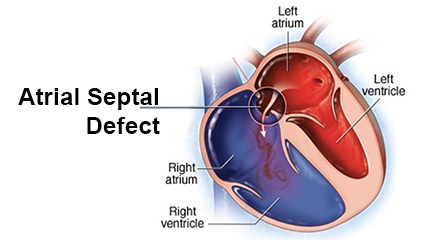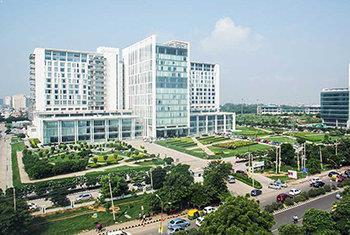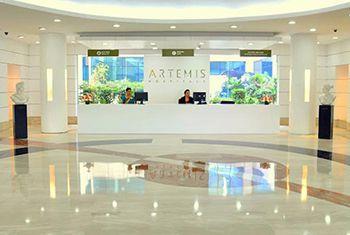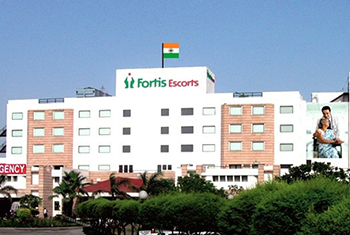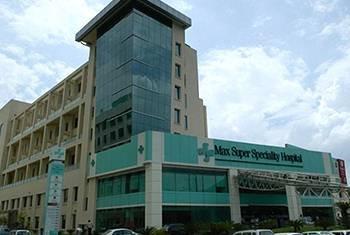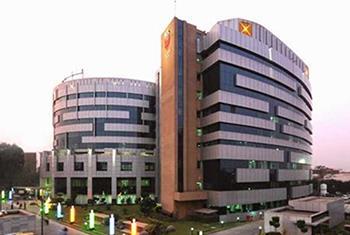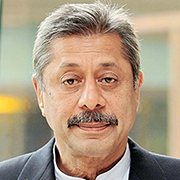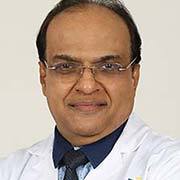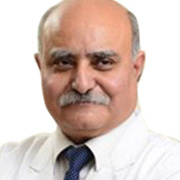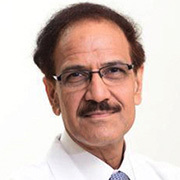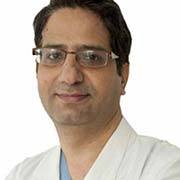What are the options for Atrial Septal Defect Treatment in India?
The treatment option for an ASD patient depends on the size, position, and severity of the symptoms. When the opening is small, it will not affect the functions of the heart and lungs, and treatment is usually not needed. Small ASDs in infants often close or narrow down on their own. There is no specific medicine that can reduce the ASD size or make close it any faster than it might do naturally.
Patients with large ASDs may need treatment in which the opening is closed during surgery with a patch or by cardiac catheterization using a device. When the ASD is in an unusual position within the heart or the patient has other heart defects such as abnormal connections of the veins that cause the flow of blood from the lungs back to the heart (pulmonary veins), ASD closure with the catheter technique is not recommended. Then surgery is the approach for treatment.
An open heart or minimally invasive surgery can be used to close a large ASD. This is usually done in early childhood, even when the infant shows few symptoms, to prevent complications that may occur later.
Heart Catheterization
During the Heart Catheterization procedure, ASD closure with the device is done using a catheter that is placed into an artery or a vein in the patient’s groin region or neck. Next, the catheter is threaded through the artery or vein to reach the heart of the patient. Before threading the catheter into the blood vessel, the surgeon attaches it to a special device or, sometimes a deflated balloon, that helps close the hole in the septum.
As the device reaches the site of the atrial septal defect, it is released from the catheter. The device then opens up and secures the hole tightly. The implant becomes a part of the heart muscle over a period of time and stays there permanently as surrounding muscles grow over it. The catheter is withdrawn from the body of the patient as soon as the device is placed inaccurate position.
The procedure is performed while the child is under a general anesthetic, which means that the child will be unconscious during the procedure.
As not every ASD can be closed using the heart catheterization method, the cardiologist first needs to measure the ASD size to determine if it can be closed with a device in the heart catheterization lab. This is done using a test called a transesophageal echocardiogram. In this, a heart ultrasound is performed with a small probe placed through the child’s esophagus. This test helps measure the size of the opening in the septum and the placement of the closure device.
If the hole is small enough to be closed with a catheterization device and in the right position, the cardiologist will use the catheter technique.
This procedure takes around one to two hours, or longer.
After the procedure
After the catheterization procedure, the child is shifted to a recovery room to wake up from the general anesthetic. Most children have to stay in the hospital for at least four to six hours following the procedure and can go home on the same day as the procedure. In the morning after the procedure, the cardiologist will perform an echocardiogram to ensure that there is no fluid around the heart.
Complications Associated with Heart Catheterization
The following complications may arise during or after heart catheterization:
- Device embolization and malpositioning
- Postimplantation arrhythmias
- Thrombus formation
- Cardiac perforation
- Device erosion
- Residual shunts
- Pericardial effusion
- Transient ischemic attack
Heart Surgery for ASD closure
A surgical repair is recommended when the ASD cannot be closed using a heart catheterization technique. The surgery can be open or minimally invasive.
Open Heart Surgery
During the open surgery procedure, the cardiac surgeon makes a cut on the patient’s chest after they are put under general anesthesia. The heart-lung machine is attached to the patient to maintain a constant supply of oxygenated blood to the body as this surgery is performed on a non-beating heart.
The cardiac surgeon may close the hole with the help of sutures or a patch depending on the size of the opening. For larger ASDs, the patch is most often used. Within the first six months after the surgery, the hole gets completely covered by the heart tissues.
Complications Associated with Open Heart Surgery
Cardiac surgery may result, although rarely, in the following complications:
- Hematoma
- Heart stroke
- Heart attack
- Excessive bleeding
- Infection
- Allergic reaction to anesthesia
- Bacterial endocarditis
Minimally Invasive heart surgery
Minimally invasive surgery involves using a key-hole approach for the surgery. This means that only a small 4-6 cm incision is made on the right side of the chest instead of the large midline incision and division of the breastbone used in open-heart surgery. Most ASD patients are candidates for minimally invasive surgery.
During the surgery, the surgeon accesses the heart through the incision made in the small space between the ribs. The heart-lung machine is placed through a small incision in the groin before the heart is stopped for sewing the opening with a patch.
The surgeon uses a soft retractor to gently opens the narrow incision between the ribs. The specialized minimally invasive instruments are then inserted through this incision to perform the operation. An endoscope device with an attached 3D camera is inserted to provide surgeons with a high-resolution image of the heart and the ASD during the surgery.
This technique allows patients to recover more quickly and have lesser post-operative pain and discomfort than open surgery. As only small incisions are made, there will be minimal scarring, barely visible after the patient recovers.
